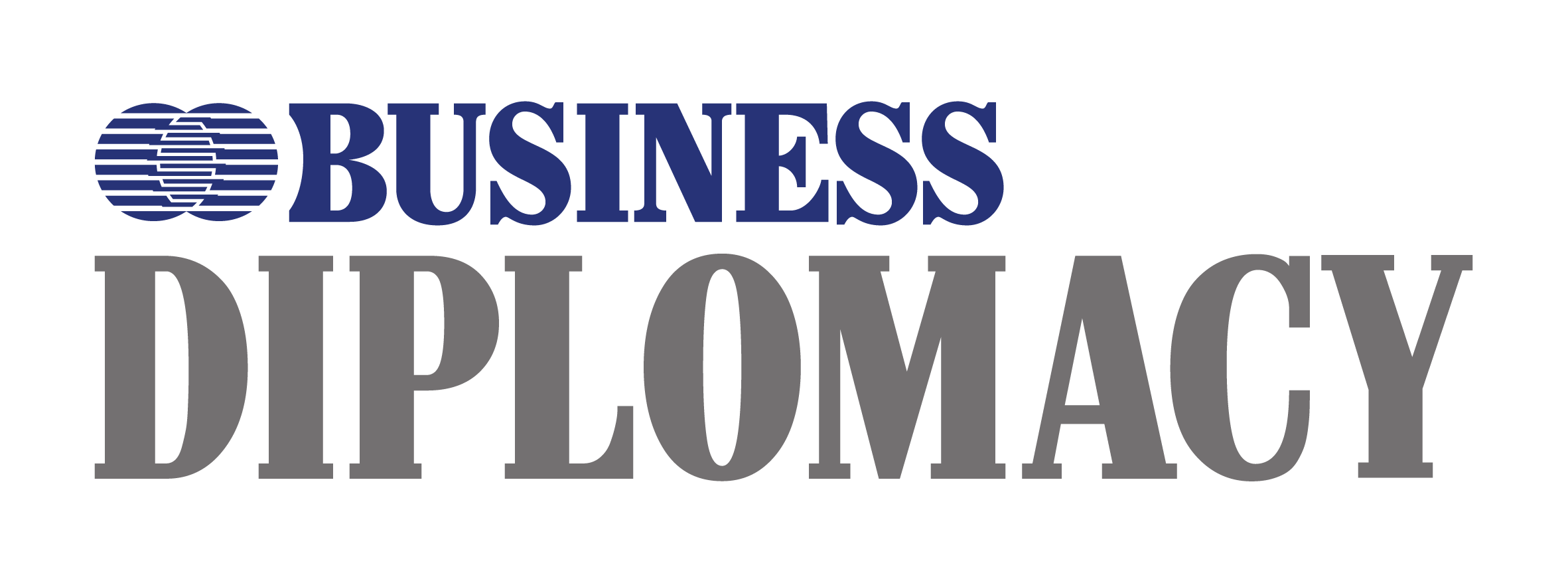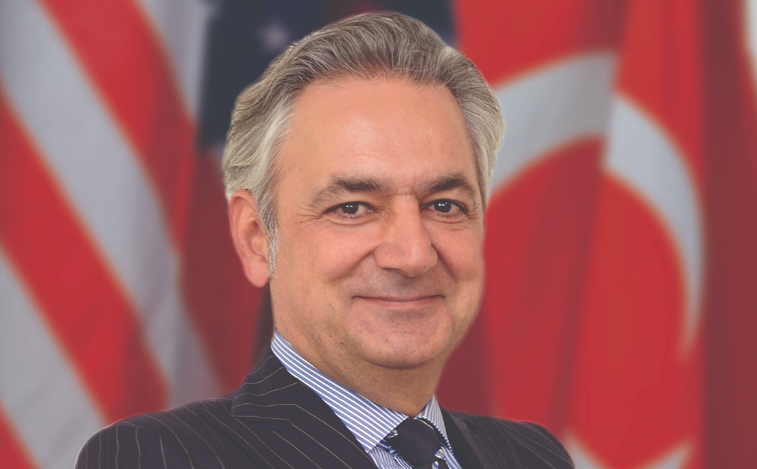Turkey-US Relations Are Highly Strategic
Our focus is on economic and trade relations with the US.
Political and military relations between Turkey and the US have always been of a strategic nature based on our 70 years of alliance and common interests. With that being said, the efforts of certain circles, which are known for their opposition to our country and devoid of strategic vision, have only one agenda on their table to muddy up our mutual relations with their negative outlook sadly put our own efforts to develop our relations to a test. What we aim to do in this regard is to overcome these challenges through effective and frank dialogues that we base on the strong and deep-rooted foundation of our relations. And we focus on our economic and trade relations that can contribute greatly to our efforts by their nature. Our economic and trade cooperation, which goes back to the interests of the American merchants in Turkish ports in the Mediterranean at the end of the 18th century, also led to the establishment of official contacts between the Ottoman State and the United States of America (US). The agreement signed in Turkish between the Ottoman Empire and the US in Algeria in 1795 is one of the first non-English agreements in American history. The US is one of the countries that apply trade policy measures the most. The country has applied tariff measures and export controls especially in recent years and adopted new approaches in negotiations for its relations with the EU through NAFTA, Transatlantic Trade and Investment Partnership (TTIP), and Trans-Pacific Partnership (TPP). And our efforts to initiate Free Trade Agreement negotiations with the US have continued with the understanding that they can contribute to the integration of the economies of the two countries on the basis of mutual benefit. It is considered beneficial to maintain this understanding in the upcoming period.
Our mutual trade volume with the US, the largest economy in the world, which was around $6 billion by the end of the 1990s, reached its highest level to date with approximately $21 billion in 2019. The same year, there was a $598 million trade surplus for our country. Our export, which was recorded as $2.57 billion in the second quarter of 2020, with the looming effects of the global pandemic, increased by 7 per cent in the third quarter to $2.75 billion. The US – known as the country that both attracts and makes the most investment – had made direct investments in Turkey worth up to $12.8 billion between 2002-2019. The US is the second country after the Netherlands that directly invest in our country. There are 1,819 American-invested companies in Turkey. The US ranks ninth in terms of the number of companies with foreign capital in our country. There are 171 Turkish-capitalized companies in the US, and Turkey’s direct foreign investments in the country are worth around $6.8 billion. Turkish Airlines (THY) has been carrying our flag worldwide for years and has direct flights from Istanbul to nine different destinations in the US. THY currently has 67 weekly flights to the US, including cargo flights. This is, of course, reflected positively on our relations in tourism, attracting 585,303 tourists from the US in 2019. Considering the lockdown situation caused by COVID-19 and the election atmosphere in the US in 2020, we can easily say that we have achieved a steady increase in our mutual economic and trade relations with the US. It is stated by the administrations and private sectors of both countries that our trade potential between the G-20 member countries is much higher. The $100 billion mutual trade volume goal determined by our President and US President Donald Trump is a realistic, valuable, and important horizon for our economic cooperation. The private sector representatives of both countries should follow and monitor this goal strongly.
During the pandemic conditions that even forced the most developed to take protectionist measures, Turkey has sent its aids to 156 countries, including the US and nine international organisations. Our country showed once again that it is a reliable, strong, and successful partner in crisis management by meeting the purchasing and export permission requests. The pandemic-affected economic environment prompted the US private sector to make its investment destinations and supply chain more diverse. They especially started to look out for ways to substitute China’s share in the US markets. And our country stands out in this regard with its geographic advantages, dynamic and educated population, labor force, quality/flexible production capacity, cost advantage, and free-market economy. In terms of our private sector, I believe that it will be beneficial to follow up the current opportunities regarding companies that can be acquired in the US, to develop cooperation in the fields of science and technology, and to carry out R&D activities in this direction. In any case, especially for our efforts to increase our exports, it will be important for our manufacturing companies to join forces on the basis of industry and product in order to meet the huge demand created by more than 330-million US population and its $21.4 trillion gross domestic product (GDP). The US’s need for medical products is increasing. The current interest in e-commerce seems to increase as well. Innovative and sustainable models are on the agenda of the textile and agriculture sectors. As to our mutual relations in energy, we see that the US is increasing its share in our liquefied natural gas (LNG) export.
This is pretty much in line with our goals to become an energy centre and to increase energy security. The US has states such as California, Texas, Illinois, New York, New Jersey, Georgia, Florida, which can be considered as one of the leading economies of the world, with an import volume exceeding $1 trillion and a gross product of $10 trillion. In this regard, what the public and private sectors should keep in mind is to follow policies that take into account the different socio-economic structures, commercial dynamics, and sectoral priorities of the 50 states. In line with the guidance of our Ministry of Trade, our related institutions open logistics bases and trade centres in certain parts of the US. I believe that we will increase our efforts to strengthen the common will to remove the barriers in front of the mutual trade and investments in the upcoming period and to advance our mutual relations on the basis of alliance and strategic partnership. In addition to our Embassy in Washington, DC, the doors of our Consulates Generals in Houston, Boston, Los Angeles, Miami, New York, and Chicago, our Commercial Counsellors and Attaché Offices that know the US market and its established business culture are always open to our businesspeople.
Turkey’s Ambassador at Washington Serdar Kılıç



